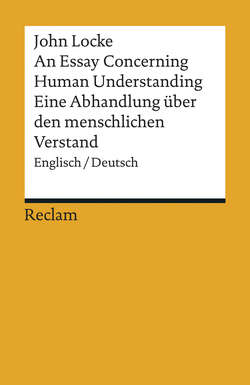Читать книгу An Essay Concerning Human Understanding / Ein Versuch über den menschlichen Verstand. Auswahlausgabe - John Locke - Страница 35
На сайте Литреса книга снята с продажи.
CHAPTER XXV
ОглавлениеOf Relation
§ 1. BESIDES the Ideas, whether simple or complex, that the Mind has of Things, as they are in themselves, there are others it gets from their comparison one with another. The Understanding, in the consideration of any thing, is not confined to that precise Object: It can carry any Idea, as it were, beyond it self, or, at least, look beyond it, to see how it stands in [304]conformity to any other. When the Mind so considers one thing, that it does, as it were, bring it to, and set it by another, and carry its view from one to t’other: This is, as the Words import, Relation and Respect; and the Denominations given to positive Things, intimating that Respect, and serving as Marks to lead the Thoughts beyond the Subject it self denominated, to something distinct from it, are what we call Relatives; and the Things so brought together, Related. […]
§ 2. […] Relations, expressed by relative terms, that have others answering them, with a reciprocal intimation, as Father, and Son; Bigger, and Less; Cause, and Effect, are very obvious to every one, and every Body, at first sight, perceives the Relation. […] But where Languages have failed to give correlative Names, there the Relation is not always so easily taken notice of. Concubine is no doubt, a relative Name, as well as Wife: But in Languages where this, and the like Words, have not a correlative term, there People are not so apt to take them to be so, […] Hence it is, that many of those Names, which duly considered, do include evident Relations, have been called External Denominations. […]
§ 3. Another sort of relative terms there is, which are not looked on to be either relative, or so much as external Denominations: which yet, under the form and appearance of signifying some thing absolute in the Subject do conceal a tacit, though less observable, Relation. Such are the seemingly positive terms of Old, Great, Imperfect, etc. whereof I shall have occasion to speak more at large in the following Chapters.
[306][…]
§ 7. Concerning Relation in general, these things may be considered:
First, That there is no one thing, whether simple Idea, Substance, Mode, or Relation, or Name of either of them, which is not capable of almost an infinite number of Considerations, in reference to other things: and therefore this makes no small part of Men’s Thoughts and Words. […]
§ 8. Secondly, This farther may be considered concerning Relation, That though it be not contained in the real existence of Things, but something extraneous, and superinduced: yet the Ideas which relative Words stand for, are often clearer, and more distinct, than of those Substances to which they do belong. The Notion we have of a Father, or Brother, is a great deal clearer, and more distinct, than that we have of a Man: Or, if you will, Paternity is a thing whereof ’tis easier to have a clear Idea, than of Humanity […].
§ 9. Thirdly, Though there be a great number of Considerations, wherein Things may be compared one with another, and so a multitude of Relations: yet they all terminate in, and are concerned about, those simple Ideas, either of Sensation or Reflection […]. To clear this, I shall shew it in the most considerable Relations, that we have any notion of; and in some that seem to be the most remote from Sense or Reflection […].
§ 10. Fourthly, That Relation being the considering of one thing with another, which is extrinsical to it, it is evident, that all Words, that necessarily lead the Mind to any other Ideas, than are supposed really to exist in that thing, to which the [308]Word is applied, are relative Words. v. g. […] Father, Brother, King, Husband, Blacker, Merrier, etc. are Words, which, together with the thing they denominate, imply also something else separate, and exterior to the existence of that thing.
[…]
